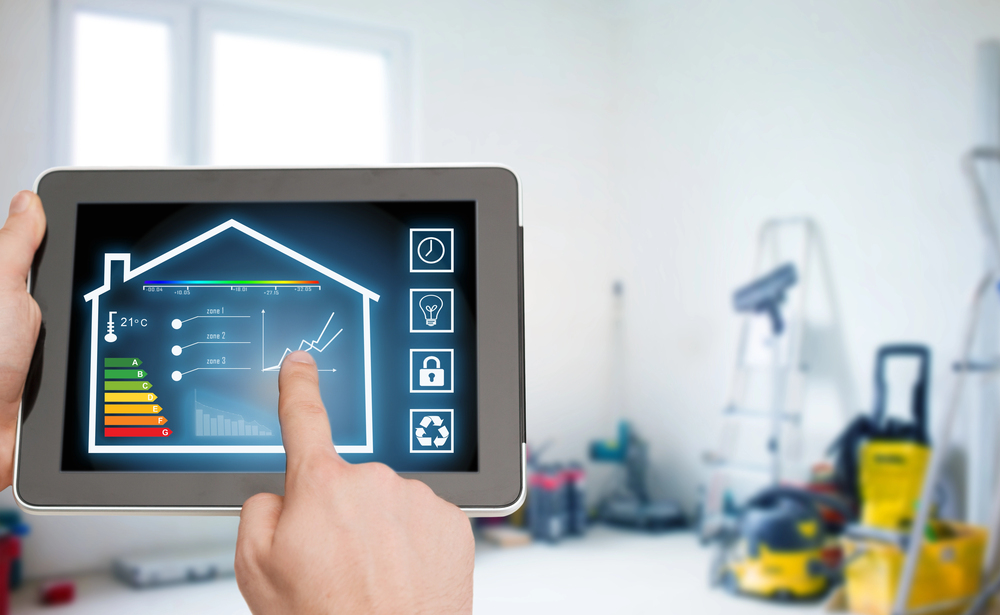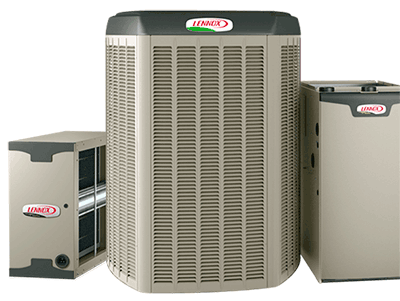Why Automated Zoning Systems Will Be a Must-Have in 2025
Jan 23, 2025

In 2025, the concept of home comfort is being redefined, with energy efficiency and personalized climate control becoming more accessible than ever. At the forefront of this evolution are automated zoning systems—HVAC solutions that allow homeowners to divide their homes into independently controlled zones. Instead of maintaining a single temperature throughout the entire home, automated zoning systems make it possible to heat or cool specific areas as needed.
This level of control not only improves comfort but also leads to significant energy savings. As smart home technologies become more advanced and energy costs continue to rise, automated zoning systems are quickly becoming a must-have for homeowners seeking a more efficient, customizable approach to heating and cooling. Here’s why 2025 is the perfect time to make the switch.
1. Personalized Comfort in Every Room
One of the main advantages of automated zoning systems is their ability to provide personalized comfort throughout the home. Traditional HVAC systems operate uniformly, often heating or cooling rooms that don’t need it. Zoning systems, on the other hand, allow homeowners to control the temperature in individual areas or “zones” of the house.
For example, if your family spends most of their time in the living room during the evening, you can direct more airflow to that zone while reducing it in unused bedrooms. This prevents energy from being wasted on rooms that don’t need climate control at that moment.
With automated zoning, everyone in the household can enjoy their ideal temperature, making arguments over the thermostat a thing of the past.
Take control of your home’s comfort with automated zoning
Enjoy personalized temperatures in every room and stop wasting energy. Make your home more efficient and comfortable today!
2. Significant Energy Savings
Automated zoning systems play a crucial role in improving energy efficiency. By only heating or cooling occupied spaces, you can avoid the unnecessary energy use associated with traditional HVAC systems that treat the entire house as a single zone.
In homes with multiple levels or large open spaces, automated zoning can lead to particularly significant energy savings. For instance, you can set different temperatures for upstairs and downstairs zones, ensuring that you’re not wasting energy trying to cool an entire floor that’s rarely used.
Studies show that homeowners who adopt automated zoning systems can reduce their heating and cooling costs by up to 30%, depending on the layout of their home and how they use the system. In 2025, with rising energy costs, this kind of efficiency is more valuable than ever.
3. Seamless Integration With Smart Thermostats and Sensors
One of the reasons automated zoning systems are expected to be a must-have in 2025 is their compatibility with smart home technology. Today’s zoning systems can be paired with smart thermostats and occupancy sensors for even more precise control. These systems use sensors to detect when a room is occupied and automatically adjust airflow to maintain the desired temperature only when needed.
Additionally, smart thermostats connected to zoning systems allow homeowners to control each zone remotely via smartphone apps or voice commands. Whether you’re in another room or away from home, you can monitor and adjust the temperature in individual zones with ease.
This integration makes automated zoning systems not just an upgrade in HVAC performance but also a key component of a fully connected smart home.
4. Reducing Wear and Tear on HVAC Systems
Running your HVAC system at full capacity to maintain the same temperature throughout your entire home can put unnecessary strain on your equipment, leading to frequent repairs and a shorter system lifespan. Automated zoning systems help mitigate this issue by allowing your HVAC system to work more efficiently.
Instead of overworking your system to condition every room equally, zoning systems distribute the workload more effectively, running only in the areas where climate control is needed. This reduces the overall runtime of the HVAC system, helping to extend its lifespan and reduce maintenance costs.
In 2025, as homeowners seek to make their investments last longer, the reduced wear and tear provided by automated zoning systems will be a major selling point.
Upgrade to an automated zoning system in 2025
Upgrade for personalized comfort, energy savings, and smarter HVAC control—making every room the perfect temperature while reducing costs and wear on your system.
5. Increased Sustainability and Lower Carbon Footprints
As sustainability becomes an even greater focus in 2025, homeowners are looking for ways to reduce their environmental impact. Automated zoning systems contribute to this goal by reducing the amount of energy needed to maintain a comfortable home.
By only using energy where it’s needed, these systems help decrease overall energy consumption and lower carbon emissions. For eco-conscious homeowners, zoning systems can also be paired with renewable energy sources, such as solar panels, to create an even more sustainable home.
Additionally, by optimizing energy usage, automated zoning systems can help homes meet energy efficiency standards, making it easier to qualify for rebates and incentives aimed at promoting sustainable living.
6. Ideal for Homes With Unique Layouts
Not all homes are created equal. Homes with multiple levels, open floor plans, home offices, or guest suites can benefit significantly from automated zoning. These types of homes often experience uneven heating and cooling, with some areas becoming uncomfortably hot or cold due to their location or structure.
With automated zoning, homeowners can address these challenges by creating specific zones for areas prone to temperature fluctuations. For example, a south-facing room that receives ample sunlight can have its own zone to prevent overheating during the day, while cooler areas like basements can be heated more efficiently.
In 2025, as more homeowners continue to work from home or repurpose spaces for home offices or gyms, automated zoning will provide the flexibility needed to maintain comfort in multifunctional spaces.
7. Financial Incentives and Increasing Accessibility
The rising popularity of automated zoning systems in 2025 is also due to increased affordability and financial incentives. As the technology becomes more widespread, the cost of installation has become more competitive. Additionally, many utility companies and government programs offer rebates for upgrading to energy-efficient HVAC solutions, including zoning systems.
These financial incentives, combined with the long-term savings on energy bills, make automated zoning systems a cost-effective upgrade for homeowners. For those planning to build new homes or renovate, including an automated zoning system from the start can also add value to the property.
Conclusion
Automated zoning systems are set to become an essential part of modern home comfort in 2025. By providing personalized climate control, reducing energy consumption, and seamlessly integrating with smart home technology, these systems offer significant benefits for homeowners looking to improve their quality of life and lower their utility bills.
In addition to financial savings, automated zoning systems support sustainability goals by decreasing energy waste and carbon emissions. With advancements in smart sensors, remote control capabilities, and compatibility with renewable energy solutions, automated zoning is an investment that offers both immediate and long-term rewards.
If you’re seeking a more efficient and customizable way to heat and cool your home, 2025 is the perfect time to upgrade to an automated zoning system and experience the difference in comfort, cost savings, and sustainability.
Improve your home’s comfort, efficiency, and sustainability
Contact Rinaldi’s today to explore automated zoning systems and take advantage of financial incentives in 2025!

